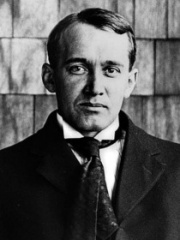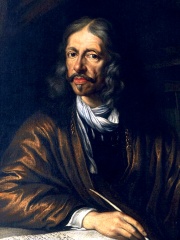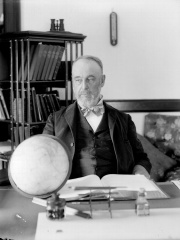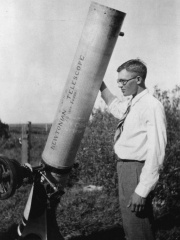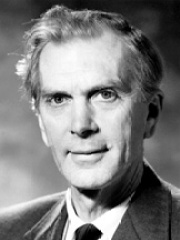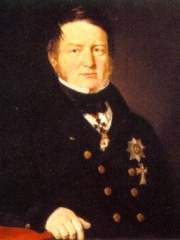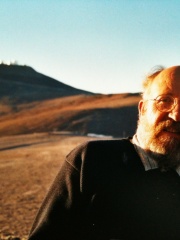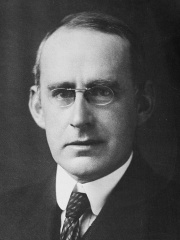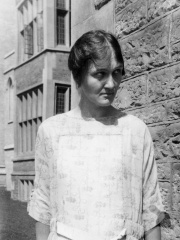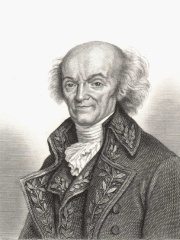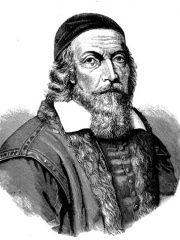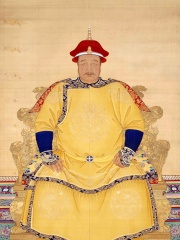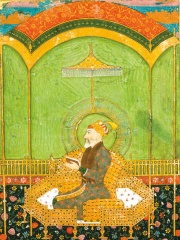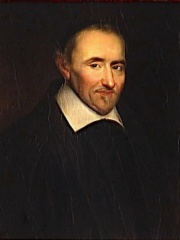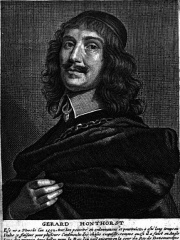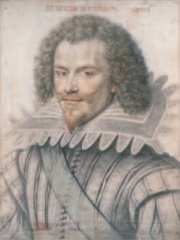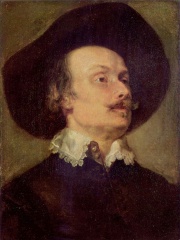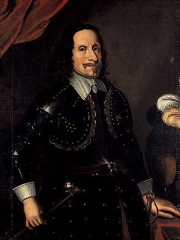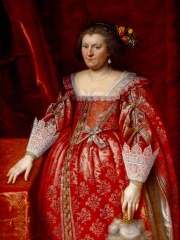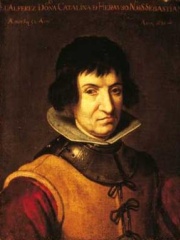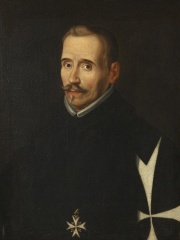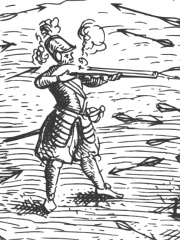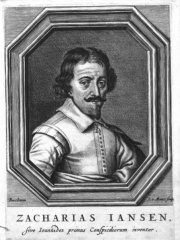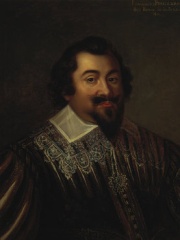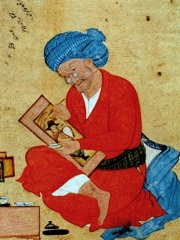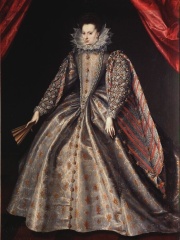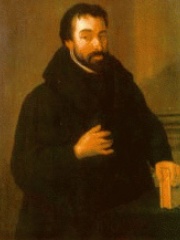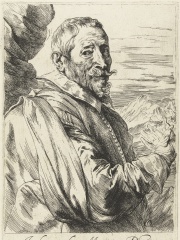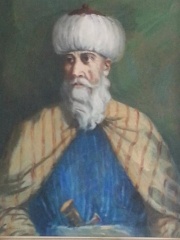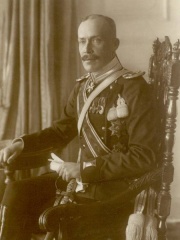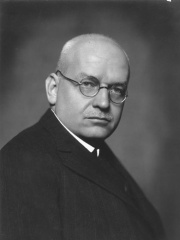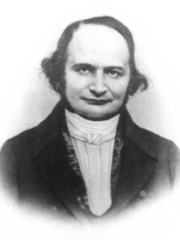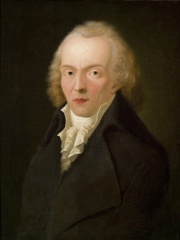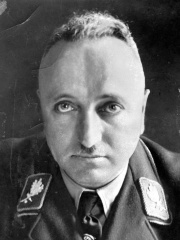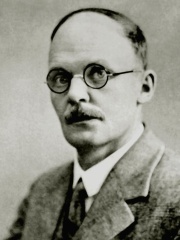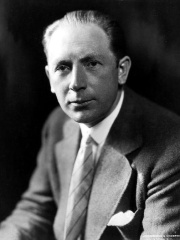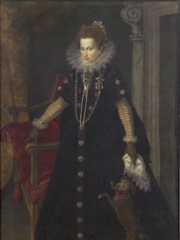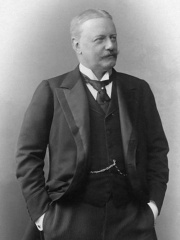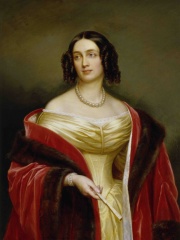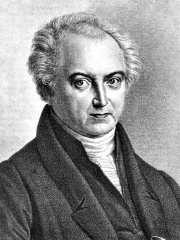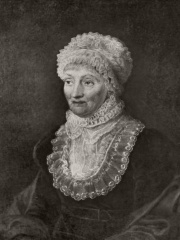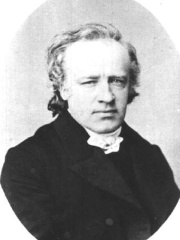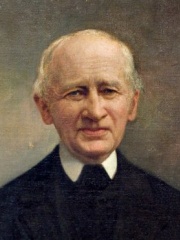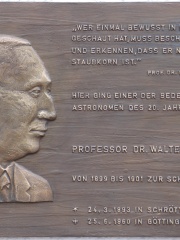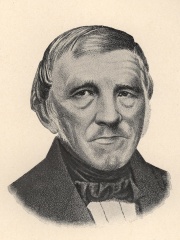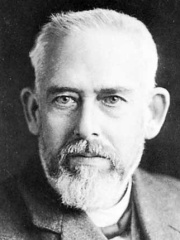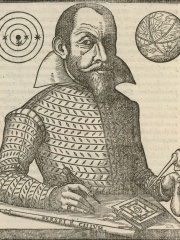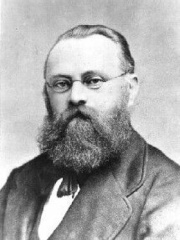Astronomer
Wilhelm Schickard
1592 - 1635
EN.WIKIPEDIA PAGE VIEWS (PV)
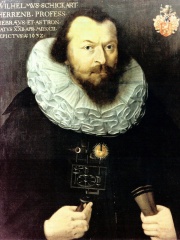
 Wilhelm Schickard
Wilhelm Schickard
His biography is available in 35 different languages on Wikipedia (up from 33 in 2024). Wilhelm Schickard is the 45th most popular astronomer (down from 32nd in 2024), the 517th most popular biography from Germany (down from 477th in 2019) and the 8th most popular German Astronomer.
Wilhelm Schickard was a German mathematician and inventor. He is most famous for inventing the first mechanical calculator, which he called the Arithmometer.
Memorability Metrics
Page views of Wilhelm Schickard by language
Among Astronomers
Among astronomers, Wilhelm Schickard ranks 45 out of 644. Before him are Vesto Slipher, Johannes Hevelius, Asaph Hall, Johann Bayer, Clyde Tombaugh, and Martin Ryle. After him are Friedrich Georg Wilhelm von Struve, Michel Mayor, Arthur Eddington, Cecilia Payne-Gaposchkin, John Michell, and Jérôme Lalande.
Most Popular Astronomers in Wikipedia
Go to all RankingsVesto Slipher
1875 - 1969
HPI: 73.27
Rank: 39
Johannes Hevelius
1611 - 1687
HPI: 73.07
Rank: 40
Asaph Hall
1829 - 1907
HPI: 73.01
Rank: 41
Johann Bayer
1572 - 1625
HPI: 72.59
Rank: 42
Clyde Tombaugh
1906 - 1997
HPI: 72.42
Rank: 43
Martin Ryle
1918 - 1984
HPI: 72.20
Rank: 44
Wilhelm Schickard
1592 - 1635
HPI: 72.18
Rank: 45
Friedrich Georg Wilhelm von Struve
1793 - 1864
HPI: 72.16
Rank: 46
Michel Mayor
1942 - Present
HPI: 72.00
Rank: 47
Arthur Eddington
1882 - 1944
HPI: 71.99
Rank: 48
Cecilia Payne-Gaposchkin
1900 - 1979
HPI: 71.96
Rank: 49
John Michell
1724 - 1793
HPI: 71.93
Rank: 50
Jérôme Lalande
1732 - 1807
HPI: 71.75
Rank: 51
Contemporaries
Among people born in 1592, Wilhelm Schickard ranks 5. Before him are John Amos Comenius, Hong Taiji, Shah Jahan, and Pierre Gassendi. After him are Gerard van Honthorst, George Villiers, 1st Duke of Buckingham, Jacques Callot, Peter Snayers, Gustav Horn, Count of Pori, Sophia Hedwig of Brunswick-Lüneburg, and Catalina de Erauso. Among people deceased in 1635, Wilhelm Schickard ranks 3. Before him are Lope de Vega, and Samuel de Champlain. After him are Jacques Callot, Şehzade Bayezid, Zacharias Janssen, John II, Count Palatine of Zweibrücken, Reza Abbasi, Elisabeth of Lorraine, Friedrich Spee, Joos de Momper, and Fakhr al-Din II.
Others Born in 1592
Go to all RankingsJohn Amos Comenius
PHILOSOPHER
1592 - 1670
HPI: 82.84
Rank: 1
Hong Taiji
POLITICIAN
1592 - 1643
HPI: 76.49
Rank: 2
Shah Jahan
POLITICIAN
1592 - 1666
HPI: 75.28
Rank: 3
Pierre Gassendi
PHILOSOPHER
1592 - 1655
HPI: 74.64
Rank: 4
Wilhelm Schickard
ASTRONOMER
1592 - 1635
HPI: 72.18
Rank: 5
Gerard van Honthorst
PAINTER
1592 - 1656
HPI: 71.16
Rank: 6
George Villiers, 1st Duke of Buckingham
POLITICIAN
1592 - 1628
HPI: 70.58
Rank: 7
Jacques Callot
PAINTER
1592 - 1635
HPI: 69.79
Rank: 8
Peter Snayers
PAINTER
1592 - 1667
HPI: 64.45
Rank: 9
Gustav Horn, Count of Pori
MILITARY PERSONNEL
1592 - 1657
HPI: 63.82
Rank: 10
Sophia Hedwig of Brunswick-Lüneburg
NOBLEMAN
1592 - 1642
HPI: 62.22
Rank: 11
Catalina de Erauso
POLITICIAN
1592 - 1650
HPI: 62.21
Rank: 12
Others Deceased in 1635
Go to all RankingsLope de Vega
WRITER
1562 - 1635
HPI: 78.62
Rank: 1
Samuel de Champlain
EXPLORER
1567 - 1635
HPI: 72.51
Rank: 2
Wilhelm Schickard
ASTRONOMER
1592 - 1635
HPI: 72.18
Rank: 3
Jacques Callot
PAINTER
1592 - 1635
HPI: 69.79
Rank: 4
Şehzade Bayezid
POLITICIAN
1612 - 1635
HPI: 64.01
Rank: 5
Zacharias Janssen
INVENTOR
1585 - 1635
HPI: 63.89
Rank: 6
John II, Count Palatine of Zweibrücken
NOBLEMAN
1584 - 1635
HPI: 63.76
Rank: 7
Reza Abbasi
PAINTER
1565 - 1635
HPI: 63.76
Rank: 8
Elisabeth of Lorraine
POLITICIAN
1574 - 1635
HPI: 62.17
Rank: 9
Friedrich Spee
WRITER
1591 - 1635
HPI: 61.41
Rank: 10
Joos de Momper
PAINTER
1564 - 1635
HPI: 60.48
Rank: 11
Fakhr al-Din II
POLITICIAN
1572 - 1635
HPI: 60.22
Rank: 12
In Germany
Among people born in Germany, Wilhelm Schickard ranks 517 out of NaN. Before him are Wied, Prince of Albania (1876), Hans Luther (1879), Carl Gustav Jacob Jacobi (1804), Jost Gippert (1956), Jean Paul (1763), and Robert Ley (1890). After him are Hans Geiger (1882), F. W. Murnau (1888), Maria Anna of Bavaria (1574), Bernhard von Bülow (1849), Elisabeth Ludovika of Bavaria (1801), and Friedrich Georg Wilhelm von Struve (1793).
Others born in Germany
Go to all RankingsWied, Prince of Albania
POLITICIAN
1876 - 1945
HPI: 72.24
Rank: 511
Hans Luther
POLITICIAN
1879 - 1962
HPI: 72.23
Rank: 512
Carl Gustav Jacob Jacobi
MATHEMATICIAN
1804 - 1851
HPI: 72.22
Rank: 513
Jost Gippert
LINGUIST
1956 - Present
HPI: 72.21
Rank: 514
Jean Paul
WRITER
1763 - 1825
HPI: 72.21
Rank: 515
Robert Ley
POLITICIAN
1890 - 1945
HPI: 72.18
Rank: 516
Wilhelm Schickard
ASTRONOMER
1592 - 1635
HPI: 72.18
Rank: 517
Hans Geiger
PHYSICIST
1882 - 1945
HPI: 72.18
Rank: 518
F. W. Murnau
FILM DIRECTOR
1888 - 1931
HPI: 72.18
Rank: 519
Maria Anna of Bavaria
NOBLEMAN
1574 - 1616
HPI: 72.17
Rank: 520
Bernhard von Bülow
POLITICIAN
1849 - 1929
HPI: 72.17
Rank: 521
Elisabeth Ludovika of Bavaria
POLITICIAN
1801 - 1873
HPI: 72.16
Rank: 522
Friedrich Georg Wilhelm von Struve
ASTRONOMER
1793 - 1864
HPI: 72.16
Rank: 523
Among Astronomers In Germany
Among astronomers born in Germany, Wilhelm Schickard ranks 8. Before him are Heinrich Wilhelm Matthias Olbers (1758), William Herschel (1738), Caroline Herschel (1750), Heinrich Louis d'Arrest (1822), Johann Gottfried Galle (1812), and Johann Bayer (1572). After him are Friedrich Georg Wilhelm von Struve (1793), Walter Baade (1893), Johann Franz Encke (1791), Max Wolf (1863), Simon Marius (1573), and Wilhelm Tempel (1821).
Heinrich Wilhelm Matthias Olbers
1758 - 1840
HPI: 80.29
Rank: 2
William Herschel
1738 - 1822
HPI: 80.07
Rank: 3
Caroline Herschel
1750 - 1848
HPI: 75.21
Rank: 4
Heinrich Louis d'Arrest
1822 - 1875
HPI: 74.38
Rank: 5
Johann Gottfried Galle
1812 - 1910
HPI: 73.80
Rank: 6
Johann Bayer
1572 - 1625
HPI: 72.59
Rank: 7
Wilhelm Schickard
1592 - 1635
HPI: 72.18
Rank: 8
Friedrich Georg Wilhelm von Struve
1793 - 1864
HPI: 72.16
Rank: 9
Walter Baade
1893 - 1960
HPI: 71.15
Rank: 10
Johann Franz Encke
1791 - 1865
HPI: 70.85
Rank: 11
Max Wolf
1863 - 1932
HPI: 70.70
Rank: 12
Simon Marius
1573 - 1625
HPI: 70.58
Rank: 13
Wilhelm Tempel
1821 - 1889
HPI: 70.03
Rank: 14
